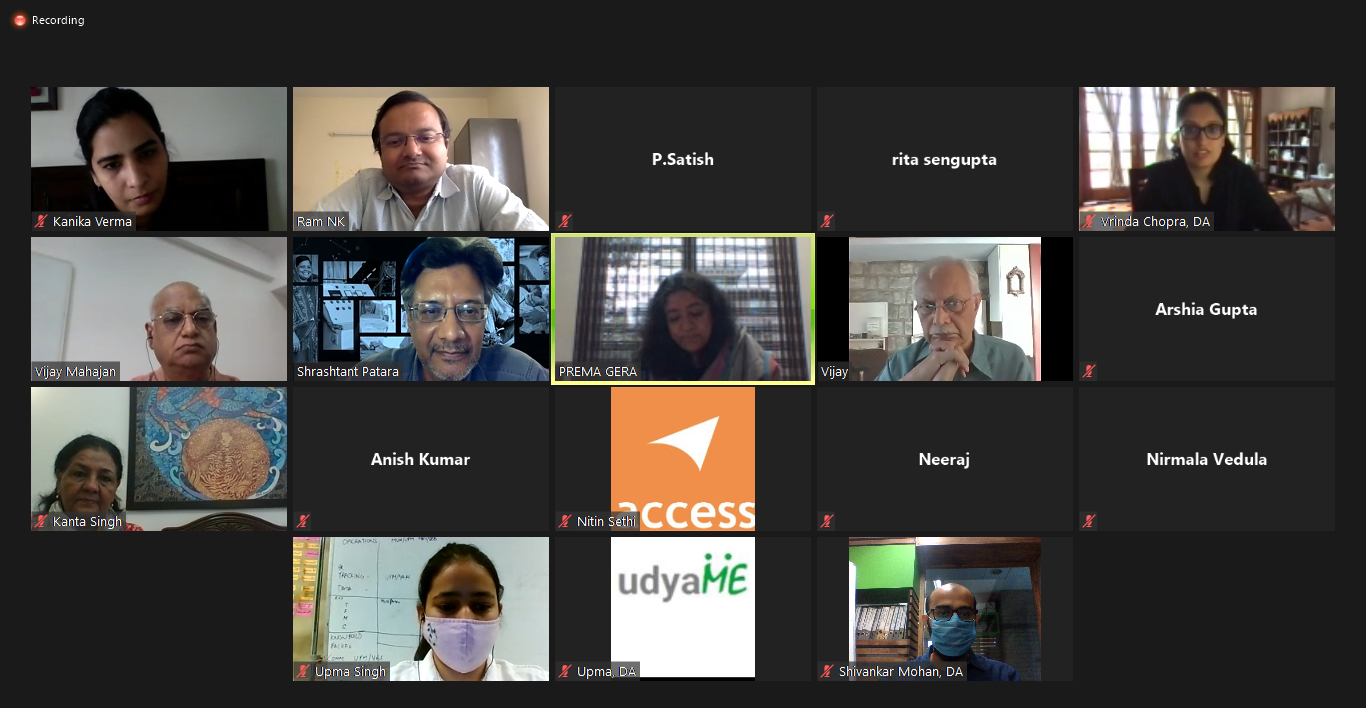|
Towards a Robust
Ecosystem for an Inclusive Tomorrow
In
recent years farming as a viable source of livelihood, paltry itself for
many years, has seen a rapid decline. With low agricultural product
prices and fragmented land holdings, rural households now earn more
income from wages than from crop farming. Wages have come to dominate
the share of income of agricultural households accounting for 56%-70% of
the income of households with less than 1 hectare of land. However, the
creation of decent job opportunities and dignified livelihoods remains a
challenge. Employment in the formal sector has been declining steadily
and nearly 81% of India’s population is employed in the informal sector.
The pandemic and the subsequent lockdown impacted the employment
generation scenario in the country, deepening the inequalities across
geographies and social groups. Over the next decade, India needs to
create 90 million nonfarm jobs to maintain its growth trajectory.
Returning migrants have contributed to the growing unemployment in their
home states, but along with them they have brought new skills and fresh
ideas which have led to dynamic changes in the aspirations and
behaviours, especially of the youth. With a large population of young
adults entering the workforce, policy interventions that cater to the
local aspirations for decent livelihood are urgently needed. These
interventions should also open up entrepreneurship to other underserved
and excluded groups like women and socially disadvantaged communities.
As per the Economic Survey 2020, entrepreneurship provides an alternate
route to curbing unemployment and having a significant impact on local
wealth creation. With our experience in the Work4Progress program, we
have observed that creation of meaningful livelihoods is dependent on
three interlinked factors - behaviour exhibited by various actors
(micro), support available in the entrepreneurship ecosystem (meso), and
the larger policy architecture (macro). Enabling entrepreneurship
opportunities requires creating change at these levels through systemic
solutions to further address socio-economic imbalances and avoid the
‘top-down’ organisational trap in creating impact at micro and meso
levels. In this line, there is a need at the macro level to
reconceptualise micro entrepreneurship and be more mindful of the
interconnectedness among stakeholders and the aspirations of
entrepreneurs. Policy measures have to be re-imagined and shaped by
ground insights to trigger systemic shifts in the governance structures
and process in creating a robust ecosystem for micro entrepreneurship.

New forms of collaboration between entrepreneurs, private companies, Government agencies and financial institutions to connect the three factors needed for creation of inclusive entrepreneurship such as the SAM-udyam, an Inclusive Entrepreneurship "Collaboratory" are needed to effectuate impact at the micro, meso, and macro levels.
The policies recommended to effectuate
impacts at scale would be
-
Create shared infrastructure for joint
action and value retention at the local level
-
Move beyond the delivery of schemes and
leverage government resources to support innovation and source expertise
-
Enable (long term) movement of processes
towards formality through an ‘informal-formal’ hybrid model which would
not impose formalisation upon rural enterprises
-
Design programs to allow for greater
autonomy at the meso level in governance structures and local
decision-making, and helping district level agencies to connect more
deeply with ground-realities from which they often find themselves
detached and to be cognisant of emerging needs and opportunities.
The need for new pathways is quite apparent
as rural households transition from farm to non-farm jobs and from
subsistence to opportunity-driven enterprises. A fundamentally different
ecosystem would need to emerge and make public policy initiatives much
more effective in accelerating economic growth and social inclusion by
empowering institutions at the micro and meso level actors.■
References:
-
Patara, S. et al (2020) "India Needs to Move
from Microenterprise Schemes to Building an Inclusive Entrepreneurship
Ecosystem" in Mahajan, V. (Ed.) State of India's Livelihoods Annual
Report 2020 (pp. 91-112), Delhi: Access Development Services
Shivankar Mohan
smohan@devalt.org
Back to Contents
|
